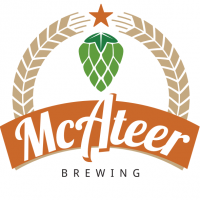Brew Log History
Ambient: {{ stats.ambient | number:0 }} °C
OG: {{ stats.ogGravity | number:3 }}
Attenuation: {{ stats.attenuation | number:2 }}%
Calories: {{ stats.calories | number:1 }} / 330ml
Carbs: {{ stats.carbs | number:1 }} g / 330ml
Readings: {{ readingsCount | number }}
{{ formatHeaderDate(dates.navStart) | date:'mediumDate' }} to {{ formatHeaderDate(dates.navEnd) | date:'mediumDate' }}
Last Updated: {{ stats.lastupdated.ago }} from {{ stats.lastupdated.source }}
Hops
|
Amount
|
Variety
|
Cost
|
Type
|
AA
|
Use
|
Time
|
IBU
|
Bill %
|
|
20 g |
Hallertau Mittelfruh20 g Hallertau Mittelfruh Hops |
|
Pellet |
4.5 |
Boil
|
60 min |
11.9 |
80% |
|
5 g |
Hallertau Mittelfruh5 g Hallertau Mittelfruh Hops |
|
Pellet |
4.5 |
Boil
|
20 min |
1.8 |
20% |
|
25 g
/ $ 0.00
|
Mash Guidelines
|
Amount
|
Description
|
Type
|
Start Temp
|
Target Temp
|
Time
|
|
6 L |
Infusion, beta-amylase rest |
Temperature |
-- |
63 °C |
40 min |
|
15 L |
maltase rest |
-- |
-- |
40 °C |
40 min |
|
29.3 L |
alpha amylase rest |
-- |
-- |
72 °C |
-- |
Starting Mash Thickness:
2.3 L/kg
|
Target Water Profile
| Ca+2 |
Mg+2 |
Na+ |
Cl- |
SO4-2 |
HCO3- |
|
0 |
0 |
0 |
0 |
0 |
0 |
|
No water additions planned. The rests could be aided by the addition of ~2mL of 88% lactic acid for the beta rest and 5mL of 88% lactic acid for the alpha rest. |
|
Mash Chemistry and Brewing Water Calculator
|
Notes
Mash is multi-step. Mash half the grain in a pot with ~6L of water (2.3L/kg), the remainder of the grain is mashed in a cooler with ~6L of water at 30C.
While the cooler remains at 30C, the pot is heated while stirring to raise the temperature to 63C for the beta-amylase rest. Hold the mash at 63C for 40 minutes (or until converted). The B-amylase rest produces maltose, for the next step.
Mix the hot mash into the cold mash in the cooler, the temperature should end up at ~45C, so some cold water is also needed - ~3L at 20C, this can be water left out at room temperature.
Allow the mash to rest at 40C for 30-40 minutes. At this temperature the enzyme maltase will be active in the grain that has not been heated to 63C, and it will break down the maltose that was produced earlier into glucose. This mash will start out with a fairly high pH (which is desirable for maltase activity), but as 40C is also in the range for an acid rest the mash will become more acidic during the mash.
We now wish to heat the mash right past the beta-amylase rest temperaturesi into the alpha amylase temperatures (high mash temp, 70C).
To do so, we will need to add boiling water.
it would take an excessive addition of hot water to bring the temperature all the way to 72C. Instead, withdraw 2.5L of liquid from the mash, and add it to 14.3L of boiling water, and heat this 16.8L of liquid to a boil. Adding 16.8L of boiling water to the mash that now has only 12.5L of liquid should raise the temperature to ~72C for a rapid alpha amylase rest. Total liquid added to the mash is now 12L+3L+14.3L = ~29.3L, so there is no volume left for sparging; the wort collected should give our pre-boil volume.
This high temperature mash will create some less fermentable sugars ensuring that the beer still has some body despite the very fermentable glucose that was previously produced.
After 30 minutes at this temperature (72C), drain the wort into the pot for the boil.
If you have the ability to do step mashes without water additions (a HERMS or RIMS setup), or if you wish to heat the mash directly the temperatures remain the same, and you may get much better efficiency than this no-sparge method.

Last Updated and Sharing

- Public: Yup, Shared
- Last Updated: 2016-02-06 16:11 UTC
For quick copying and pasting to a text based forum or email.
Click the Download as HTML file button below.
Recipe costs can be adjusted by changing the batch size. They won't be saved but will give you an idea of costs if your final yield was different.
|
Cost $ |
Cost % |
| Fermentables |
$ |
|
Steeping Grains
(Extract Only) |
$ |
|
| Hops |
$ |
|
| Yeast |
$ |
|
| Other |
$ |
|
| Cost Per Barrel |
$ 0.00 |
|
| Cost Per Pint |
$ 0.00 |
|
| Total Cost |
$ 0.00 |
|
Discussion about this recipe:





